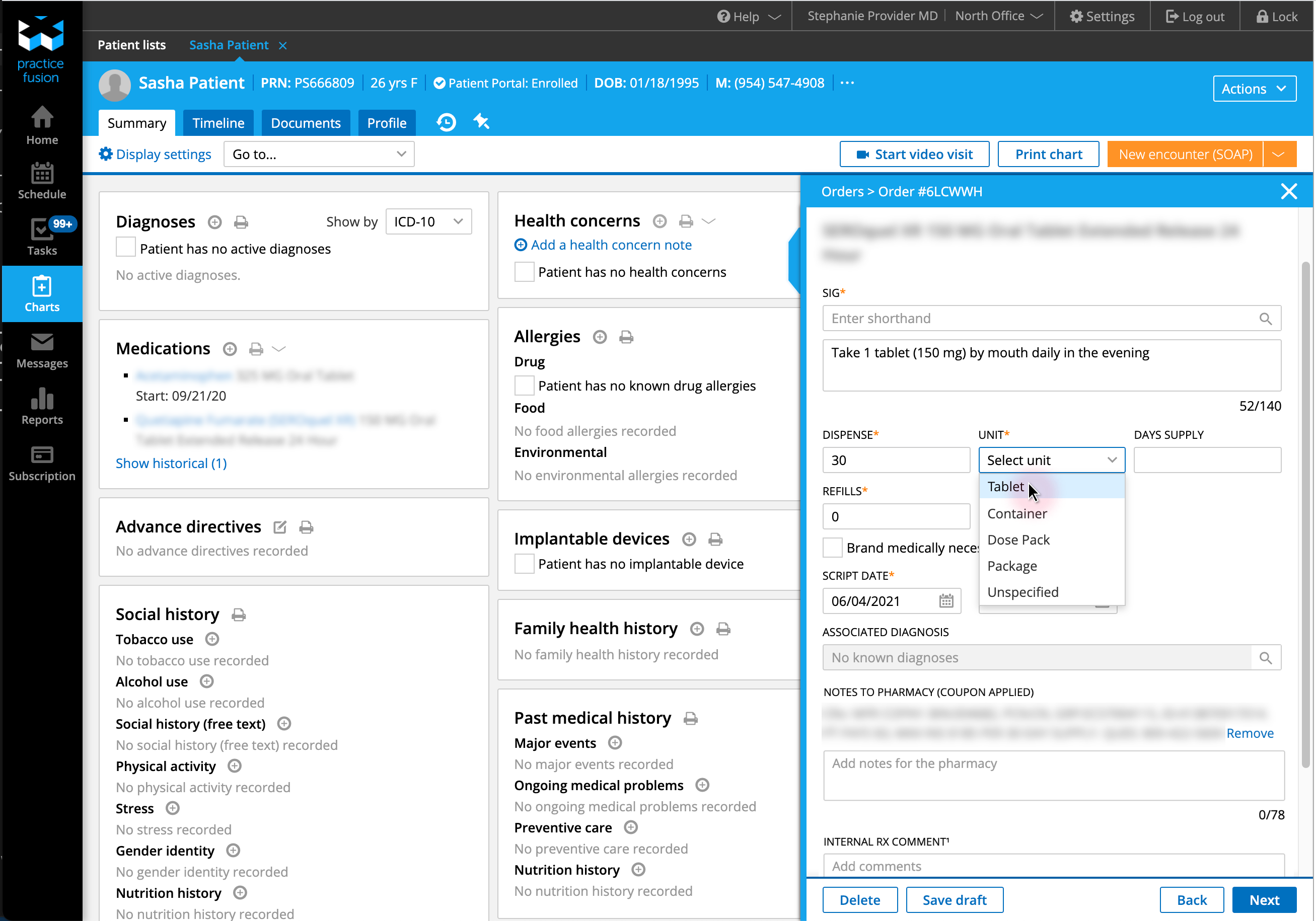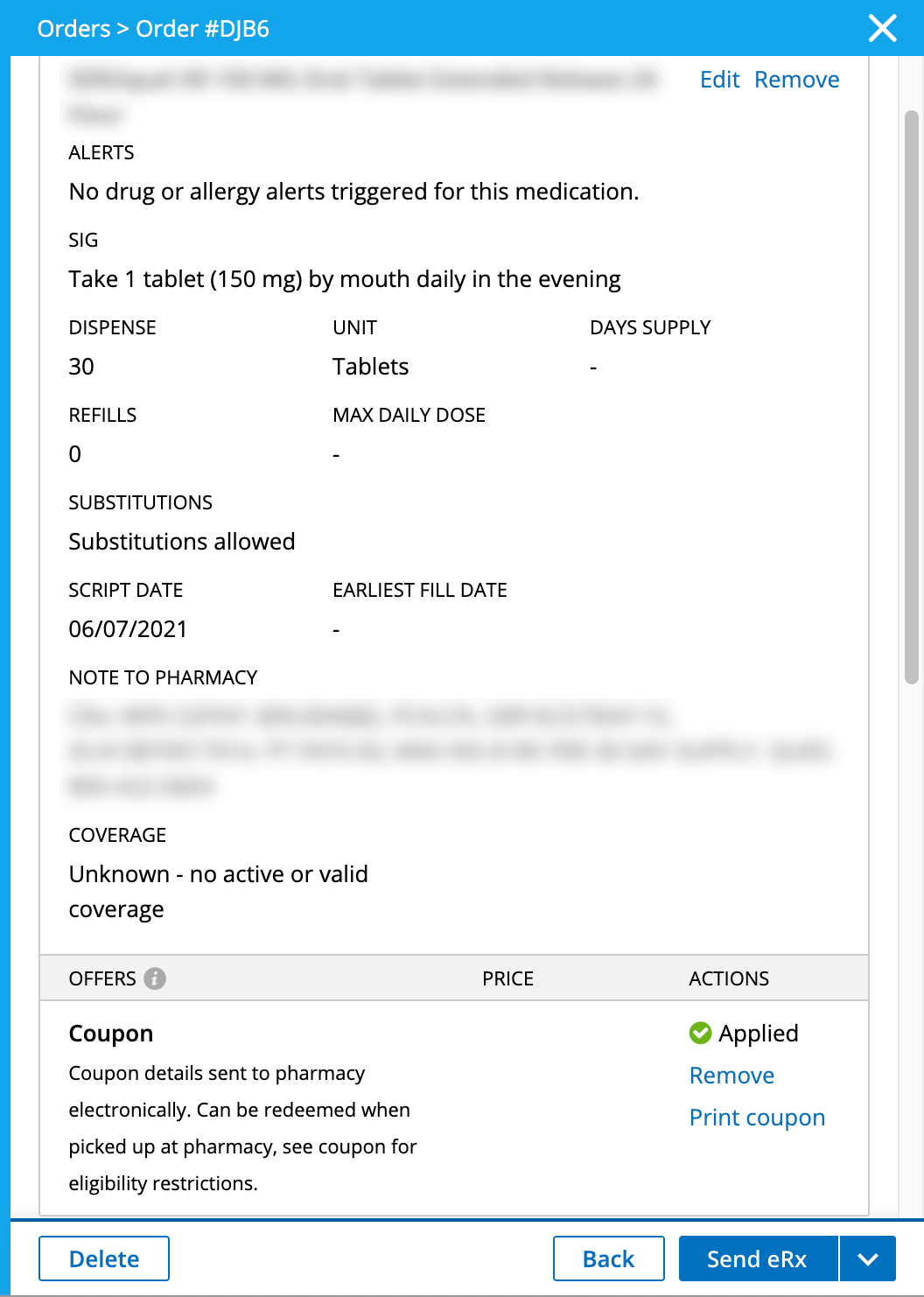Improving medication adherence with eCoupons provided at the point-of-care

Disclaimer: See coupon for eligibility restrictions
A recent Gallup poll reports that Americans are the most stressed-out people in the world.1 High out-of-pocket costs for healthcare and medications are some of the main contributors to that stress. In the past decade, medication and healthcare costs have increased dramatically in the United States.2 The Centers for Medicare and Medicaid Services (CMS) estimates that drug spending increased nearly 27% just between 2012 and 2016, while a recent PEW study found that net spending on medications jumped from $250.7 billion in 2012 to $341.0 billion in 2016, or 36%.3
A healthcare affordability crisis
Our country faces a healthcare affordability crisis, one that makes it difficult for patients to adhere to their prescribed treatments.4 Numerous studies show that higher out-of-pocket drug costs impact medication adherence, with an inverse relationship between high out-of-pocket medication costs and a patient’s ability to access their medication.5,6 Higher out-of-pocket costs reduce the likelihood that patients will begin treatment with their prescribed medication.3,6 Even among patients who fill their initial prescription, high out-of-pocket costs increase the likelihood that they will delay refilling their prescription, stop their treatment early, skip doses of their medication, or cut pills to make their prescription last longer.4,6
Data from the Kaiser Family Foundation show that nearly one in four Americans who take prescription medications say it is difficult to afford them, and that 20% to 30% of prescriptions are never filled. Older adults are at particularly high risk for non-adherence. Kaiser Family Foundation data show that 29% of older adults did not take their medication as prescribed at some point in the past year because of medication cost.4,6
Although there are many different reasons for medication non-adherence, numerous studies have shown that the primary factor affecting adherence is cost.4 In their annual patient survey, the PAN Foundation found that more than 50% of patients who received a Foundation grant in 2019 were not taking their medications as prescribed prior to receiving financial aid. Among their most economically vulnerable patients—those with incomes of less than $25,000 a year—64% reported not taking their medications as prescribed.4
The negative impact of medication non-adherence
Medication non-adherence increases the risks of:2,6
- Worsening patient health
- Disease progression
- Development of comorbid conditions
- Increased healthcare costs
- Hospitalization
- Death
Medication non-adherence is thought to cause at least 100,000 preventable deaths every year. Although the financial cost of non-adherence is difficult to estimate, it is thought to cause up to $44,190 per person yearly.5,7
Although there are many different reasons for medication non-adherence, numerous studies have shown that the primary factor affecting adherence is cost. In their annual patient survey, the PAN Foundation found that more than 50% of patients who received a Foundation grant in 2019 were not taking their medications as prescribed prior to receiving financial aid. Among their most economically vulnerable patients—those with incomes of less than $25,000 a year—64% reported not taking their medications as prescribed.4
The importance of patient engagement
Patient engagement can help make the healthcare process easier for patients and can promote improved health outcomes.8,9 One study showed that less-engaged patients are three times as likely to have unmet medical needs and twice as likely to delay medical care.8
Tools available within the Practice Fusion EHR can help improve patient engagement and lower medication costs, which has been shown repeatedly to be correlated with higher rates of medication adherence.4 eCoupons are automatically included in Practice Fusion’s electronic prescription feature. eCoupons can help your patients save money on their medications which may, in turn, encourage them to adhere to their prescribed medication regimens. Read on to learn how to access and use eCoupons to help your patients save money on their prescription medications.
Practice Fusion supports eCoupons
eCoupons are available to all providers who have enabled electronic prescriptions (e-prescribing) in their Practice Fusion EHR.10 Setting up e-prescribing with Practice Fusion requires you to enter your medical credentials and complete identity verification through ID.me. For a complete walk-through of how to set up e-prescribing with your EHR, review the Practice Fusion Knowledge Base article, “How do I sign up for eRx (e-Prescribing)?”
After you prescribe a medication, you will be notified if a coupon is available for that medication. Coupons can be printed and given directly to patients; or coupons can be digitally attached to the electronic prescription to be redeemed at the pharmacy; or both. (Note: You should not give eCoupons to patients who use any Federal healthcare program to pay for their prescription medications, such as Medicare or Medicaid.)10
Using eCoupons in Practice Fusion
Once you are set up for e-prescribing, you can add a medication and create an e-prescription from several places in a patient’s chart, including the Patient Summary.
The provider starts by selecting the desired medication and adding prescription details. If a coupon is available, the details will then be shown in the “Notes to pharmacy” section of the order.

If a coupon is available for the medication, the prescriber will also see it marked as applied in the Offers section of the prescription order summary screen. Coupons can be printed and given directly to patients, digitally attached to the electronic prescription, or both. The coupon can also be removed from the order. To learn more about eCoupons, “How do I use eCoupons?”

Help develop trust with cost conversations
Incorporating prescription pricing into your care plan conversations can strengthen the trust and understanding between you and your patients. Communication about their medication cost will help your patients feel more involved and engaged in their healthcare. eCoupons can help make prescription medications more affordable for your patients which, in turn, may help to increase your patients’ medication adherence and improve health outcomes.
References:
- Solly M. Americans Are Among the Most Stressed-Out People in the World, Reporting Negative Emotions at Highest Rates in a Decade. Smithsonian Magazine. Updated April 26, 2019. Accessed May 17, 2021, https://www.smithsonianmag.com/smart-news/americans-are-some-most-stressed-out-people-world-reporting-negative-emotions-highest-rates-decade-180972047/.
- Chisholm-Burns MA, Spivey CA. The ‘cost’of medication nonadherence: consequences we cannot afford to accept. J Am Pharm Assoc. 2012 52(6):823-826. doi:10.1331/JAPhA.2012.11088
- Hamm N. How High Drug Prices Affect Patients. Managed Healthcare Executive. Updated May 6, 2019. Accessed May 18, 2021, https://www.managedhealthcareexecutive.com/view/how-high-drug-prices-affect-patients.
- Klein DJ. Medication non-adherence: a common and costly problem. PAN Foundation. Updated June 2, 2020. Accessed May 16, 2021, https://www.panfoundation.org/medication-non-adherence/.
- Cutler RL, Fernandez-Llimos F, Frommer M, Benrimoj C, Garcia-Cardenas V. Economic impact of medication nonadherence by disease groups: a systematic review. BMJ Open. January 21, 2018 8:e016982. doi:10.1136/bmjopen-2017-016982
- PAN Foundation. Issue Brief No. 13: Medication Adherence. 2020. April 2020. https://www.panfoundation.org/app/uploads/2020/05/Issue-Brief-13_Medication-Adherence.pdf
- Kleinsinger F, MD. The Unmet Challenge of Medication Nonadherence. Perm J 2018 22:18-33. doi:10.7812/TPP/18-033
- The Importance of Patient Engagement in Healthcare. Cleargage. Updated October 8, 2019. Accessed May 17, 2021, https://cleargage.com/blog/the-importance-of-patient-engagement-in-healthcare/.
- What is Patient Engagement? Healthcare Information and Management Systems Society, Inc. (HIMSS). Accessed May 17, 2021, https://www.himss.org/what-patient-engagement.
- How do I use eCoupons? Practice Fusion. Accessed May 15, 2021, https://help.practicefusion.com/s/article/How-do-I-use-eCoupons.


